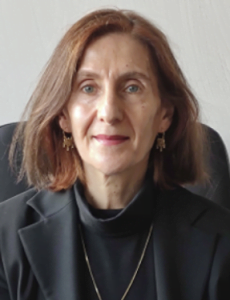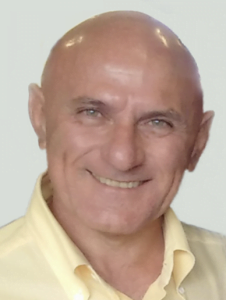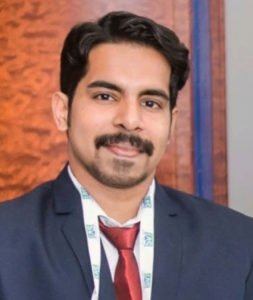Electronic systems have recently undergone rapid evolution thanks to high-performance integrated systems and computer technologies. The demand for numerical control algorithms to manage the operations of electronic components and the system as a whole has increased, and the complexity of the system has increased with faster execution times. As a result, it has become common practice in engineering to test the control algorithm through real-time simulation before using it on a digital power management system or motor drive. In this context, the processor-in-the-loop (PIL) approach offers a much cheaper and simpler alternative for evaluating control algorithms, with better accuracy and a closer approximation to the actual dynamics of the system and controller.
The tutorial aims to provide participants with a powerful tool for the design and implementation of embedded algorithms in numerical targets through the exploitation of the ‘PIL’ concept in the PSIM simulation environment. The tutorial will include a comprehensive approach from model development to the implementation on a hardware target.
 Aissa CHOUDER
Aissa CHOUDER
Full professor in the Department of Electrical Engineering at Mohamed BoudiaFUniversity in M’sila, Algeria, and head of the ‘Micro-Grids’ team at the Electrical Engineering Laboratory (LGE).
Aissa Chouder : Prof. Aissa Chouder received his engineering and magister degrees in electronics from the Université Ferhat Abbas, Sétif, Algeria, in 1991 and 1999 respectively, and his Phd in electronic engineering from the Universitat Politècnica de Catalunya (UPC), Barcelona, Spain, in 2010.
He is currently full professor in the Department of Electrical Engineering at Mohamed Boudia University in M’sila, Algeria, and head of the ‘Micro-Grids’ team at the Electrical Engineering Laboratory (LGE). He has co-authored more than 150 articles in international journals and conference proceedings. His research focuses on modelling of power electronics, control of renewable energy systems and AC and DC microgrids.
The tutorial aims to :
- Design and Implementation of ML for Forecasting: Types and Terms
- Experimental study on the use of ML for Forecasting tasks.
- Deep Recurrent Neural Networks for spatiotemporal data analysis and forecasting
- Performance Evaluation: Mean Squared Error, Mean Absolute Error, Mean Absolute Percentage Error.
- Practical Session: Deployment using python of ML & DL Models for Forecasting on Web Applications: Case Study in Energy.
 Wael OUARDA
Wael OUARDA
Assistant professor at the Digital Research Centre of Sfax (CRNS), Tunisia, and a member of the Laboratory of Signals, Systems, Artificial Intelligence and Networks (SM@RTS).
Wael Ouarda is an assistant professor at the Digital Research Centre of Sfax (CRNS), Tunisia, and a member of the Laboratory of Signals, Systems, Artificial Intelligence and Networks (SM@RTS).
Wael Ouarda is leading projects on the development of brain-like architectures for Multimedia Object Representation, Analysis, and Recognition at the Brain4ICT Team. He received his PhD from the University of Sfax in 2017 at the National School of Engineering. He has been working for 14 years on Artificial Intelligence and He has also contributed to the development of several projects in the field of Artificial Intelligence.
Over the last two decades, digitally controlled power electronic converters and electric drives have become key enabling technologies in strategic areas such as transportation, industry, robotics, renewable energy, smart grids, distributed generation, consumer goods, etc.
Power electronic converters are required to fulfil many demanding tasks, but they all share some basic requirements, including optimisation of energy conversion, high flexibility and low cost, according to the concept of Life Cycle Assessment (LCA). When used with electrical machines, they ensure precise control and bi-directionality of electro-mechanical energy conversion, optimising wind or wave energy conversion, electrical propulsion, motion and tracking in robotics, etc. Much effort is being made in this area to further increase the level of performance and applications.
In power conversion, multilevel converters (MLCs), first proposed for high power and high voltage applications, are gaining popularity and applications at all power levels, demonstrating exceptional flexibility and performance. Key features of MLCs are their ability to overcome the voltage limitations of power devices, provide modularity and fault tolerance, and reduce the harmonic content affecting their input/output currents and voltages. There are many different topologies, each with advantages and disadvantages. They are often more complex to control than conventional topologies and their modulation patterns can be generated in many different ways. Often the algorithmic complexity is solved off-line, then the pre-calculated patterns are applied via look-up tables. These approaches require large amounts of memory, can reduce the accuracy, and are not very flexible in closed-loop operation.
Analytical methods, on the other hand, offer significant advances: exact problem formulation, simple and effective real-time implementation, the ability to selectively eliminate or mitigate harmonics, the possibility of cascading the modulator with the external control loops.
Motivated by increasing power levels in a limited space and fault tolerance constraints, there is a strong interest in dc distribution and in multiphase systems and drives, which represent a new and very promising trend, particularly in automotive powertrains, and can be successfully adopted in other high power fields, such as wind/wave generation or high power industrial drives, where high currents are a problem and a cause of reduced efficiency and reliability.
This tutorial will cover all the above topics in a structured way, presenting them all with the support of mathematical modelling and analysis, and discussing with the audience some promising directions in the field. Several examples and experimental results will be presented to show the feasibility of these technologies.
Speakers:

Prof. Concettina Buccella, IEEE Fellow, University of L’Aquila, Italy.
Professor in Power Converters, Electric Machines and Drives (S.S.D. ING-IND/32).

Prof. Carlo Cecati, IEEE Life Fellow, University of L’Aquila and Politecnico di Bari, Italy
Professor in Power Converters, Electric Machines and Drives (S.S.D. ING-IND/32)

Dr. Amir Ghasemian, Politecnico di Bari and University of L’Aquila, Italy

Dr. Prasoon Chandran Mavila, University of L’Aquila, Italy